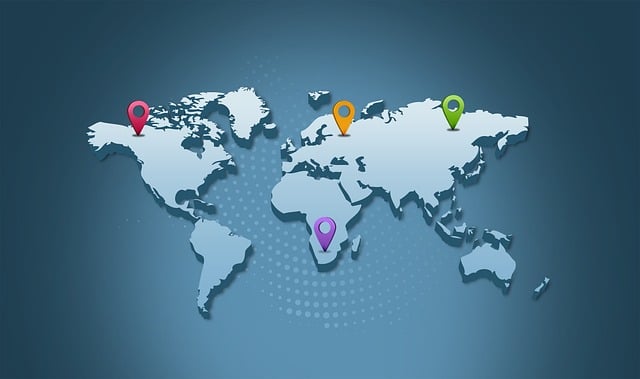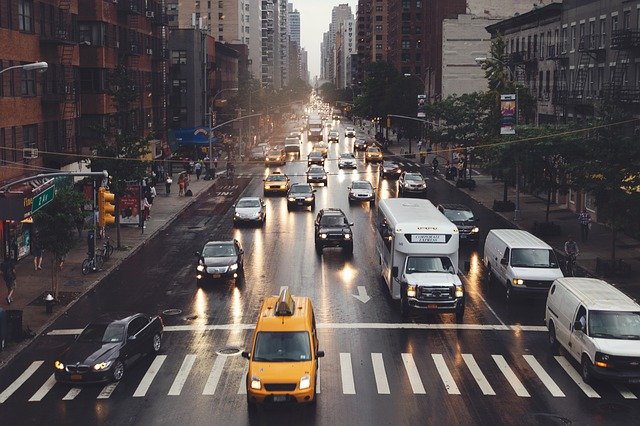The Risks of Location Sharing on Social Media
Michelle Wilson - June 20, 2023

You’re on a dream vacation, snapping breathtaking photos of the crystal-clear waters and picturesque landscapes complete with white sand and swaying palm trees. The view is too good, so you decide to post a photo of your view onto Instagram with your hotel’s location.
You aren’t alone. According to public data from a leading cybersecurity company, 59% of adults have shared their location on social media, with younger generations being more likely to disclose this information. Unfortunately, amidst the excitement and desire to share your experiences, you fail to consider the risks of location sharing, and the result is devastating.
Table of Contents
How Does Location Sharing On Social Media Expose Personal Information?
When you post a photo with your location on social media, you provide a breadcrumb trail for anyone accessing your posts or profile. By revealing your exact whereabouts, you inadvertently expose personal information that others can exploit. From your favorite hangout spots to your daily routines, location sharing paints a detailed picture of your life and habits, making it easier for someone to track your movements and gain insights into your personal life.
Unfortunately, some individuals actively seek location data shared on social media platforms. Armed with this information, they can exploit it in various ways. For instance, burglars can use your location updates to determine when your home is unoccupied, putting your property and belongings at risk. Moreover, cybercriminals can leverage your location data to launch targeted attacks, such as phishing scams or identity theft, as they possess valuable knowledge about your whereabouts and routines. The following section will explore each of these risks in greater detail.
Privacy Risks
The first risk that location sharing on social media poses is a privacy risk. When you share your location, you are essentially providing personal information that others can access and exploit.
Unauthorized Access to Personal Information
Disclosing your whereabouts makes it easier for malicious individuals to gather information about your habits, routines, and even your home address. This data can lead to various privacy breaches, such as unwanted contact, unsolicited marketing, or even more severe consequences like targeted attacks or burglary.
Potential for Stalking or Harassment
Location sharing on social media also increases the potential for stalking or harassment. By broadcasting your current location or check-ins, you may unwittingly provide valuable information to individuals with malicious intent. Malicious parties can also use this information to track your movements, monitor your activities, or even target you physically or emotionally.
Remember that not everyone in your online network may have good intentions, and sharing your location without caution can make you more vulnerable to unwanted attention or harassment.
Increased Vulnerability to Identity Theft
Another critical privacy concern about location sharing is the heightened vulnerability to identity theft. When you disclose your location, it becomes easier for cybercriminals to gather information about you and potentially use it to steal your identity. They can gather details from your check-ins, posts, and other shared content to build a profile and exploit it for fraud. Identity theft can have severe consequences, ranging from financial loss to damage to your personal and professional reputation. For context, online data conducted by Javelin Strategy & Research revealed that in 2020, there were approximately 5 million identity theft cases in the United States alone.
Personal Safety Risks
Sharing your location in real-time poses its own set of dangers. While it may seem exciting to let your friends and followers know where you are at any given moment, it also means that anyone with access to your location can track you in real time. This information can lead to unwanted encounters or even dangerous situations, especially if you are unaware of who has access to your location data.
Physical Harm
When it comes to location sharing on social media, the potential for physical harm is a significant personal safety risk. For example, sharing your location publicly can attract unwanted attention from strangers, increasing the likelihood of uncomfortable encounters or dangerous situations. In fact, according to online data conducted by the Pew Research Center, 30% of adult social media users have experienced at least one incident where someone they did not know attempted to contact or interact with them in a way that made them feel uncomfortable or threatened.
Furthermore, location sharing can escalate into stalking and harassment. According to new public data Bureau of Justice Statistics, about 7.5 million people in the United States experienced stalking in a year. By providing detailed location updates on social media, individuals can unknowingly give stalkers or harassers the means to track their movements and monitor their activities, invading their personal space and compromising their safety.
Burglaries or Targeted Home Invasions
Sharing your location in real-time can inadvertently provide criminals the perfect opportunity to plan burglaries or targeted home invasions. The consequences of such intrusions can be devastating, both emotionally and financially. According to public data, approximately 1.2 million burglaries occurred in the United States in 2020. Authorities link many of these incidents to criminals exploiting location data shared on social media platforms. For instance, online data from the University of North Carolina found that 78% of convicted burglars admitted to using social media platforms to identify potential targets. They would scan profiles and posts to gather information about people’s whereabouts, routines, and possessions, enabling them to plan their criminal activities more effectively.
Moreover, targeted home invasions pose an even greater risk to personal safety. Criminals with access to your location updates can gather intelligence about your daily habits, such as when you leave or return home. This information allows them to choose the most suitable time to enter your residence when they know you are absent or vulnerable. The consequences of such invasions can extend beyond material loss, potentially resulting in physical harm or trauma.
Protecting Children and Family Members
Protecting the safety of children and vulnerable family members is of utmost importance, and location sharing on social media can inadvertently put them at risk. By sharing the location of these individuals, whether intentionally or unintentionally, you may unknowingly provide valuable information to online predators or individuals with malicious intent. Online predators actively search for opportunities to exploit personal information shared on social media platforms. They may use location data to gather insights about the routines, habits, and vulnerable moments of children or elderly family members. This knowledge can help them identify potential targets and tailor their approaches to manipulate or harm those individuals.
According to online data in a National Center for Missing and Exploited Children report, 1 in 7 children aged 10 to 17 have received unwanted sexual solicitations online. In some cases, the predators may use location information to establish trust or proximity to their targets, posing an even greater danger. The consequences of such interactions can be severe and long-lasting, affecting both the physical and emotional well-being of the individuals involved. Therefore, guardians need to be cautious about sharing the location of their children on their social media. By refraining from publicly disclosing where children go to school, participate in extracurricular activities, or spend their free time, you can reduce the risk of exposing them to potential harm.
Cybersecurity Risks
By disclosing your whereabouts, you expose yourself to threats that can compromise your online privacy and security, better known as cybersecurity risks. Consider some of these dangers in the next section.
Targeted Advertising and Data Collection
Sharing your location on social media provides valuable data to advertisers and other third-party entities. These platforms can collect information about your movements, preferences, and interests, allowing them to create targeted advertisements tailored to your location and behavior. While personalized ads may seem convenient, they come at the cost of your privacy.
According to online data, 79% of Facebook users have encountered targeted ads based on online activities. Collecting location data enables advertisers to deliver location-specific ads, which can be intrusive and potentially lead to privacy violations. Moreover, the extensive tracking of your location can create a detailed profile of your habits and preferences, giving advertisers a deeper understanding of your consumer behavior.
Geotagging and Location-Based Targeting
Geotagging, the process of adding location metadata to posts, photos, or videos, can have unintended consequences. When you share geotagged content on social media, you provide precise information about your whereabouts at a specific time. This information can enable cybercriminals or malicious individuals to track your movements, identify patterns, and potentially exploit your personal information.
Additionally, location-based targeting poses a cybersecurity risk. Companies and advertisers can leverage your location data to deliver targeted content, offers, or promotions. While this may appear as less of a threat than the previous examples, it is essential to understand the implications of such targeting. The more information available about your location and preferences, the greater the potential for manipulation and the likelihood of falling victim to scams or phishing attempts.
Linking Location with Other Personal Information
Additionally, cybercriminals and data aggregators can build a comprehensive profile of your online presence by linking your location with other personal information shared on social media. They can combine your location data with other identifiable details such as your name, email address, or workplace, creating a more extensive dataset. This valuable information can become the foundation for identity theft, social engineering attacks, or unauthorized access to your accounts.
According to a study conducted by Norton LifeLock, 59% of consumers have experienced a form of cybercrime. By linking your location with other personal information, you increase the risk of becoming a target for cyberattacks or data breaches. The more data available, the more opportunities cybercriminals have to exploit vulnerabilities and gain unauthorized access to your sensitive information.
How to Keep Your Location Hidden on Social Media
Many fear using social media after evaluating the risks of location sharing. Fortunately, this reaction is not necessary. Instead, social media users can choose to keep their location hidden on their accounts, allowing them to still enjoy the benefits of their account without running into any potentially life-altering situations.
Disable Location Settings on Your Phone
The first step in safeguarding your location is to ensure you turn off your location settings on your phone. Disabling this feature prevents apps and services from accessing your precise location data. Take a moment to go to your phone’s settings and disable location tracking to limit the exposure of your whereabouts.
Review App-Specific Location Tracking Settings
Beyond your phone’s general location settings, you will want to review and adjust the location tracking settings for each app on your device. Many apps have their own location settings that can override your phone’s settings. Take the time to examine the settings of each app, including social media platforms, and ensure that you turn location tracking off. Doing so can prevent these apps from inadvertently sharing your location data.
Disable Geotagging in Photos
Geotagging in photos automatically adds location information to the metadata, potentially revealing your whereabouts when shared on social media. To mitigate this risk, disable geotagging in your smartphone’s camera settings. By disabling this feature, your images won’t be tagged with location data, providing an additional layer of privacy.
Avoid Manually Sharing Your Location
Another of the most effective ways to keep your location hidden is to refrain from manually sharing it in your social media posts. Avoid typing out your exact location, including details about your whereabouts or holiday plans. By abstaining from sharing your location manually, you reduce the likelihood of inadvertently revealing your personal information to a wider audience.
Customize Privacy Settings on Social Media Accounts
A final tip is to review and adjust the privacy settings on your social media accounts to further enhance your privacy. Ensure these settings align with your preferences, allowing you to share your posts only with people you trust. Utilize features such as friend lists, restricted profiles, or private account settings to control who can view your posts and access your location information. Regularly monitor and update these privacy settings to ensure you have total control of your online presence.
Additional Suggestions for Users To Protect Their Privacy
While location sharing on social media carries risks, there are a few additional ways to protect your privacy online while still enjoying the benefits of sharing your experiences.
Selective Sharing
Be mindful of who you share your location with. Consider sharing your whereabouts only with trusted friends and family rather than broadcasting it to a wider audience. Use privacy features on social media platforms to control who can see your location updates.
Geotagging With Caution
When posting photos or updates, think twice before geotagging your exact location. Instead, consider using more general tags or omitting location information altogether.
Delayed Sharing
Instead of sharing your location in real-time, wait until you have left a location or returned home before posting about it. Doing so reduces the risk of revealing your immediate whereabouts and potential vulnerabilities.
Be Extra Selective About Your Followers
Although optional, some platforms allow you to have a private account on their site, in which you can choose to add the followers you would like. The benefit is that you have full control over who is following you; some may choose to be only people they meet in person. If you have an open account or get a request from someone you might not know, you may run a free background check on the person to determine if you want them among your follower list.
Conclusion
Location sharing on social media exposes personal information, making users vulnerable to privacy breaches, stalking, cyberattacks, and identity theft. It can also allow criminals to plan burglaries or target individuals based on their movements and routines.
For this reason, it becomes that much more essential for users to exercise caution and be mindful of the risks involved in location sharing. Fortunately, using the tips above, it can be easy to share that beautiful beach view without worrying about some of the possible repercussions.
Related Posts
Recent Posts
Popular Posts
Sorry. No data so far.








